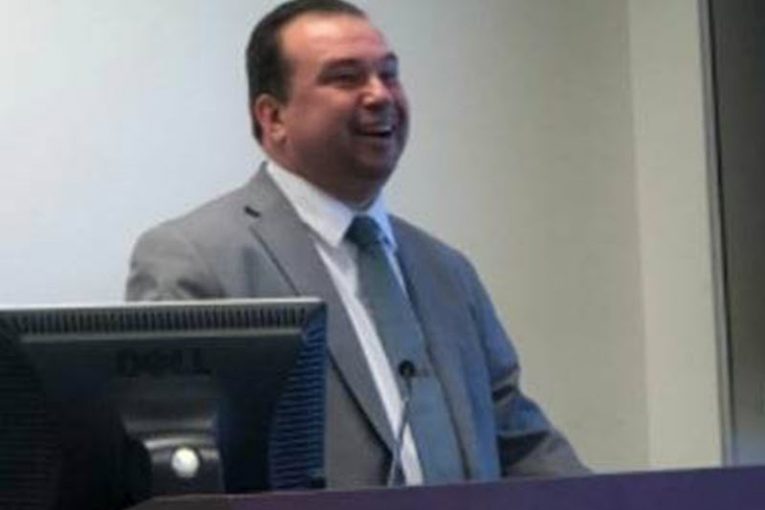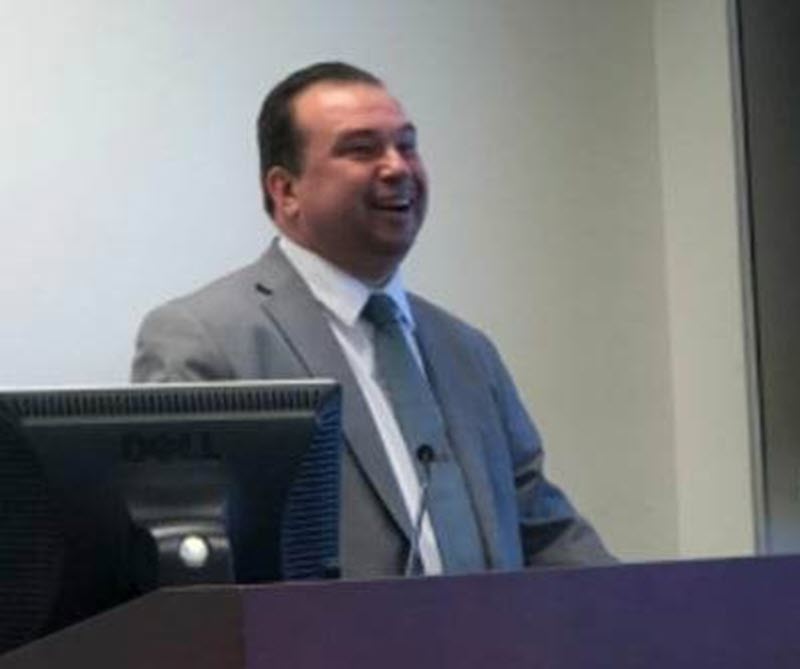

By Jeffrey Deskovic
“Looking back” will feature reprints of articles that Jeff previously wrote while a columnist at The Westchester Guardian, which encompass topics that are applicable here in CA as well as across the country and not simply applicable to NY.
Jabbar Collins, now thirty-seven years old, was convicted in 1995 of killing Abraham Pollack during a 1994 robbery attempt. Pollack was a rabbi and landlord in the Williamsburg section of Brooklyn. Two witnesses said that they saw him running from the crime scene, while a third claimed to have been present when Collins planned the crime.
On June 8, 2010, Collins was cleared of this crime after serving sixteen years in prison.
After his appeals failed, Collins set about the task of educating himself. He obtained his general education degree in prison and taught himself the law. He became fluent enough in law to assist other prisoners with their appeals, and in several cases, he helped them regain their freedom.
Using the Freedom of Information Law (FOIL), Collins obtained a mountain of evidence that had been illegally withheld from his lawyers by Brooklyn A.D.A Michael F. Vecchione, now the head of the rackets division.
Hundreds of pages of documents were uncovered, including secret notes by legal aid lawyers, prison records, 911 tapes, and statements by key witnesses in his case.
Collins obtained permission from a prosecution witness, Edwin Oliva, to obtain notes from Oliva’s legal aid defenders. These notes revealed Oliva testified for the prosecution in exchange for leniency in a robbery case. This was crucial because Vecchione previously denied Oliva had made any leniency deal. Indeed, in his closing arguments, Vecchione said the claim was “absurd” and “laughable.”
Another witness, Adrian Diaz, returned from Puerto Rico with Vecchione. In court, Vecchione swore that Diaz had not been promised or given anything other than lodging and airfare. After locating Diaz from prison, Collins called him posing as a prosecutor reconstructing records. Diaz admitted in a conversation Collins secretly taped that the prosecution had eradicated Diaz’s probation violation.
Angel Santos testified against Collins at trial. In a post-conviction habeas corpus hearing, Santos described how he was coerced to give favorable testimony for the government. “I told them I didn’t want to get involved,” he said, “so what they did, they locked me up.” Santos said Vecchione repeatedly threatened to hit him and said, “If you don’t testify, you’re going to be in jail in a long time.”
Santos was held in jail for a week before he cracked and agreed to say what Vecchione wanted to convict Collins.
The 911 tapes were discussed during Collins’s trial but had never been turned over to the defense.
Other documents linking two other men to the crime were uncovered by Collins’s FOIL requests.
Federal District Judge Dora Irizarry presided over Collin’s post-conviction habeas corpus case. She had ruled Collins was entitled to an evidentiary hearing at which prosecutors, police officers and civilian witnesses would testify in order to fully uncover what happened in the underlying state criminal case. Prosecutors strongly objected to the hearing, but she overruled them, saying, “What is the fear of going forward? It makes all the sense to me to have the hearing and let the parties air it out and let the chips fall where they may.”
After Santos, the first witness, testified, the Brooklyn district attorney’s office suddenly agreed to drop all charges and not retry Collins. Judge Irizarry lamented the hearing would not go forward so that all the wrongdoing by police and prosecutors could be exposed.
In response, Brooklyn District Attorney Charles Hynes defiantly announced to the media Vecchione did nothing wrong and there would be no internal investigation into his conduct.
The Collins case is an extreme example of prosecutorial misconduct. It highlights why federal legislation is urgently needed to criminalize such misconduct. Currently, no law is in place to restrain rogue prosecutors, and there is no internal oversight or discipline within most D.A.’s offices, as Charles Hynes made abundantly clear.
Hynes’s statement that Vecchione did nothing wrong was outrageous. Vecchione hid a mountain of evidence, lied to the jury, coerced witnesses, and failed to correct perjured testimony. This conduct is simply not acceptable. As Judge Irizarry told the prosecutors, “Your job is not simply to win, it is to seek justice”—under that standard, how can it be said that Vecchione or his colleagues in the Brooklyn D.A.’s office measured up?
Hynes’s statement signals to prosecutors working for him that it is okay to engage in misconduct, and they need not fear reprisals. He should bow his head in shame.
Collins repeatedly sought relief from the courts, but prosecutors fought him every inch of the way, even when they knew his arguments were meritorious. What is more, the prosecutors were successful. In his lengthy, 24-page decision dated Sept. 5, 2007, Justice Robert K. Holdman refused to hold a hearing on Collins’s claims, and, based on prosecutors’ arguments, insisted Collins was just a lying murderer.
Thank God for Dora Irizarry. Her decision to hold the hearing which Justice Holdman refused made all the difference in the world. Faced with the prospect that its misconduct would be exposed, the prosecution caved in.
The Collins case reminds me of the Anthony Disimone case here in Westchester. D.A. Jane DiFiore refused to turn over 376 pages of information to Disimone’s attorneys, including information pertaining to the guilt of two other parties. Nonetheless, she wants to retry Disimone. This is not justice. Nor is it consistent with her mandate to seek justice, not simply win cases at all costs. DiFiore, like Hynes, is betraying the public trust and acting shamefully. Yet, she postures that she is an anti-wrongful conviction advocate. She, too, should bow her head in shame.
Let us hope Disimone can be heard in federal court. His habeas corpus petition is now pending.
Jeffrey Deskovic, Esq, MA, is an internationally recognized wrongful conviction expert and founder of The Jeffrey Deskovic Foundation for Justice, which has freed 9 wrongfully convicted people and helped pass 3 laws aimed at preventing wrongful conviction. Jeff is an advisory board member of It Could Happen To You, which has chapters in CA, NY, and PA. He serves on the Global Advisory Council for Restorative Justice International, and is a sometimes co-host and co-producer of the show, “360 Degrees of Success.” Jeff was exonerated after 16 years in prison-from age 17-32- before DNA exonerated him and identified the actual perpetrator. A short documentary about his life is entitled “Conviction“, and episode 1 of his story in Virtual Reality is called, “Once Upon A Time In Peekskill“. Jeff has a Masters Degree from the John Jay College of Criminal Justice, with his thesis written on wrongful conviction causes and reforms needed to address them, and a law degree from the Elisabeth Haub School of Law at Pace University. Jeff is now a practicing attorney.





